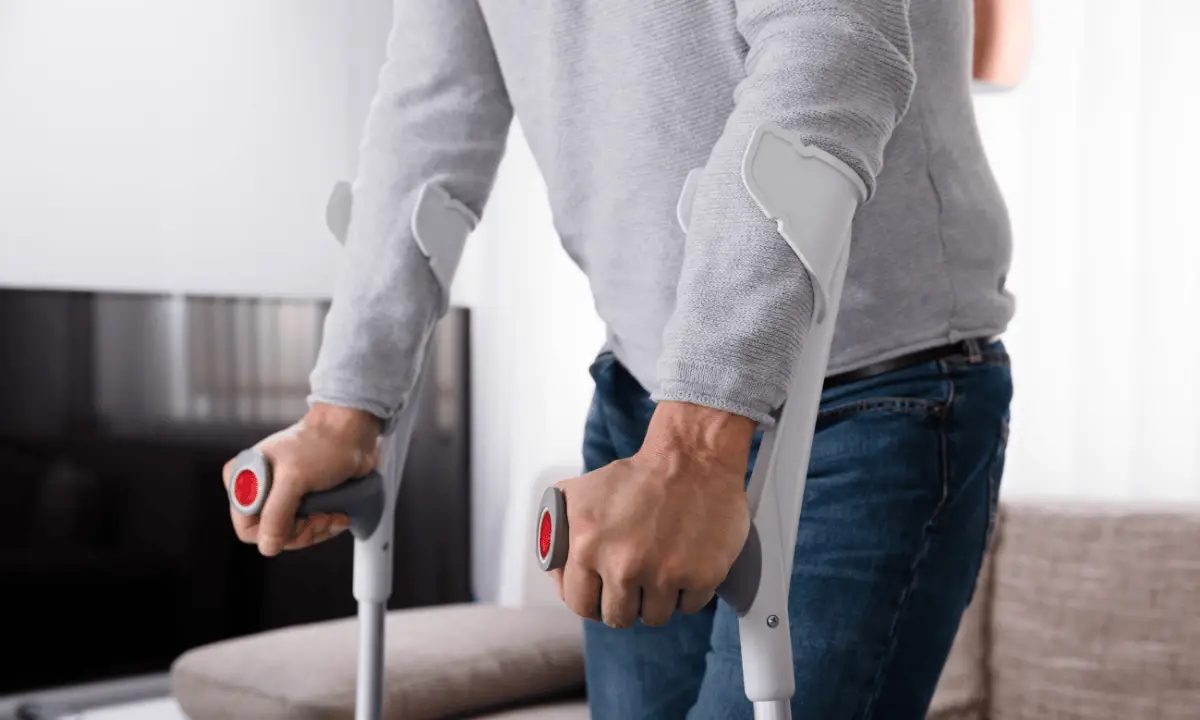Navigating an AMP Super TPD claim, or understanding your AMP TPD income protection insurance can feel like a mountain to claim just when you need it the most. If you’re dealing with a serious injury, financial stress, or a denied claim, you might be asking: Will my AMP superannuation fund support me? What about the TPD insurance included in my super?
Here’s what the numbers tell us: as of 30 June 2024, AMP Super (SignatureSuper) managed approximately $55 billion in fund assets and had over 610,000 member accounts, making it one of the largest super funds in Australia.
Yet despite AMP Super’s success, many members can face unexpected hurdles when making an AMP TPD insurance claim through their AMP super.
That’s where Withstand Lawyers comes in. We believe your super should work for you. Not just in markets and returns, but in the moments when you truly need it. Read on to find out how your AMP Super TPD cover and income protection insurance can help you when you need it the most, and how we can help you claim it.

What Does AMP Super TPD Insurance Offer?
AMP Super’s TPD insurance is designed to pay you a lump sum benefit if you suffer a physical or mental disability that prevents you from returning to your work. This payout can help cover rehabilitation costs, ongoing living expenses, and secure your financial future during a time of significant uncertainty.
At Withstand Lawyers, we have deep experience helping clients with AMP TPD claims. We understand the common issues, policy requirements, and reasons for delays or denials. While the following information is based on our experience assisting clients with AMP TPD insurance claims, each case is unique and will depend on your specific superannuation policy and personal circumstances.
Am I Eligible to Receive AMP Super TPD Benefits?
While AMP Super offers Total and Permanent Disability (TPD) insurance through various plans, the exact eligibility criteria can differ slightly depending on your policy and insurer. That’s why our TPD lawyers strongly recommend reviewing your specific AMP super policy before making a claim.
However, you may be eligible to lodge an AMP TPD claim if the following apply to you:
You are an active member of AMP life insurance and over 16 years of age.
You held active TPD insurance on the date you last worked.
You worked a minimum set of hours before ceasing employment (varies by policy).
You stopped working due to an injury or medical condition.
You are unlikely to ever return to work in any job you’re suited for based on your education, training, or experience.
You had been working at any time within the 16 months before your disability.
You have been unable to work for a continuous period of six months or more.
These conditions can vary significantly between AMP superannuation products and insurance providers. For a clear and accurate assessment of your eligibility, speak to our experienced AMP TPD lawyers. We’ve helped hundreds of AMP members access the insurance entitlements they deserve. Contact us today for a free claim assessment.

How to Make a Successful TPD Claim Through AMP Super
Making a successful TPD claim with AMP Super involves meeting several policy conditions and providing strong supporting evidence. While the exact process may vary depending on your insurance policy, here’s what you generally need to know:
1. Confirm Your Membership and Coverage
You must have been an active member of AMP Super at the time of your disablement and/or the date you last worked. Your TPD insurance must have been active on that date.
2. Meet the Policy Definitions
Each AMP TPD insurance claim is assessed against the terms and conditions of your specific superannuation policy. These definitions vary across AMP plans, so it’s critical to understand what your policy requires. Our TPD lawyers can find your policy and assess your eligibility.
3. Prove Incapacity to Work
In most cases, you need to show that you’ve been unable to work due to illness or injury for at least three consecutive months. However, if you have a specific medical condition outlined in your policy (such as cancer), you may not need to wait the full three months. Contact our TPD lawyers to find out if an exception applies to you.
4. Gather and Submit Supporting Documents
To strengthen your AMP super claim, you will usually need to provide:
Medical evidence from your GP or specialists
Medical reports, diagnostic test results, and treatment records
A certified copy of your driver’s licence or passport
Proof of your education, training, and work experience
Employment documentation (termination letter, employer statements, etc.)
Financial evidence like recent payslips, tax returns, and bank statements
The AMP TPD claim process can be complex, and even minor errors can cause delays or cause your claim to be denied. Our team at Withstand Lawyers has successfully managed hundreds of AMP Super TPD claims, and we’re here to guide you through every step. Contact us today for a free claim assessment to know where you stand.

How Do I Receive My AMP TPD Payout?
Once your AMP TPD claim is approved, accessing your TPD payout is the final and most important step. Here’s what typically happens:
1. TPD Benefit Payment
Your TPD payout is usually paid into your AMP Super account. You may then have access to:
The lump sum TPD insurance benefit, and
Any existing superannuation balance in your account.
2. Payment Options: Lump Sum or Income Stream
If you meet a condition of release under superannuation law, you can choose how to access your funds. Depending on your circumstances, you may:
Withdraw the TPD benefit as a lump sum, or
Convert it into a regular income stream through your AMP Super account.
Every case is different, and the right option depends on your financial goals, tax implications, and personal situation. Our experienced TPD lawyers can help you understand what payout structure works best for you and guide you through the withdrawal process. Contact us today to see how much your AMP Super TPD payout could be worth.
Do I Need to Pay Tax on My AMP TPD Payout?
Whether you pay tax on your TPD payout from AMP Super depends on the type of benefit you’re withdrawing and your personal circumstances.
Is the TPD Insurance Benefit Taxable?
In most cases, the TPD insurance benefit itself is tax-free when it is paid into your super account. However, when you choose to withdraw that benefit, different tax rules may apply.
What Affects the Tax You Pay?
The tax on your TPD payout will depend on:
Whether you’ve reached your preservation age
How you choose to access your super (lump sum or income stream)
The taxable and non-taxable components of your super balance
Get the Right Financial Advice
We strongly recommend seeking independent financial or tax advice before accessing your TPD lump sum or superannuation balance. Withstand Lawyers specialises in TPD claims, but we are not licensed to provide tax or financial advice. A qualified advisor can help you minimise tax and make the most of your entitlement.

AMP Super TPD Claim Example: Meghan’s Story
Meghan is 26 years old and worked in a retail shop for 30 hours a week until she sustained physical and psychological injuries due to a motorcycle accident.
Even though she can still do everyday activities such as eating, showering, and dressing herself, Meghan now has trouble concentrating.
Meghan has been doing rehabilitation after her accident, but it is unlikely for her to ever be able to perform key parts of her job or a similar one as re-stocking shelves, and standing for long periods.
Meghan’s claim is accepted by AMP Super because the insurer determines the evidence presented met her policy requirements.
Our TPD Lawyers take pride in that we go above and beyond in obtaining as much evidence as possible to prove your claim. Contact our TPD lawyers for a free claim check whereby we reach out to your superfunds and request all your policies to advise you of your eligibility.
If you are eligible our TPD lawyers will act on your behalf to claim your AMP Super TPD benefits on a No Win, No Fee basis.

Issa Rabaya
• Bachelor of Laws
• Graduate Diploma in Legal Practice
• Approved Legal Service Provider to the Independent Review Office
• Member of the Law Society

Issa Rabaya
• Bachelor of Laws
• Graduate Diploma in Legal Practice
• Approved Legal Service Provider to the Independent Review Office
• Member of the Law Society
Frequently Asked Questions
TPD claims can be denied for one or more of the following reasons, if you:
- Don’t meet the disability outlined in your policy
- Have an inactive or invalid policy
- Haven’t provided convincing medical evidence to support your TPD claim
- Haven’t met work history requirements
- Failed to disclose pre-existing injuries
- Have errors or inconsistencies in your evidence
Remember that these reasons depend on your insurer policy, circumstances and medical evidence. They may not be entirely accurate for your claim. You may feel that you have provided all the evidence you could obtain, but it might still not be enough for your insurer to move forward with approving your claim. As your insurer makes the decision, this process can be frustrating.
If your claim is denied, reach out to one of our TPD compensation lawyers who will help you navigate your way through.
If your TPD claim is denied, you have the right to dispute the insurer’s decision.
Insurers can sometimes make mistakes, and you are entitled to request a review of their decision. A claim denial doesn’t mean the insurer’s decision is final or correct. If you believe the decision was unfair, you can file a formal complaint with your insurance or superannuation provider to seek a review. Additionally, you can take your complaint to an industry tribunal or the Financial Ombudsman Service.
We strongly recommend contacting our experienced TPD lawyers for expert advice on how to challenge the decision and guide you through the next steps.
Yes.
It’s important to understand that receiving a TPD payout is based on the evidence that demonstrates you are unlikely to ever return to work. However, this doesn’t mean that if you eventually recover from your injury—whether physical or psychological—you are barred from returning to work because of the TPD payout. The assessment is made based on your condition at the time of the claim.
If you still have concerns, our experienced TPD lawyers at Withstand Lawyers are here to support you. We can guide you through this challenging period, whether you’re dealing with physical, psychological, or a combination of both types of injuries.
If you have suffered a serious illness or injury that has left you unable to work, you may be eligible to claim TPD compensation from your superannuation fund, depending on your policy. TPD benefits are not automatically granted; you must submit an official claim to your insurer detailing your situation and providing the necessary evidence.
To qualify for a TPD payout, you will need to medically prove your condition. Start by obtaining a medical certificate from an approved specialist. Additionally, you should provide information about your occupation, payroll records, and any other relevant documents that explain why your injury prevents you from performing your job. Once you have gathered all these documents, complete the claim form and submit it to your insurer to begin the TPD claim process.
Different types of cancer can significantly impact a person’s life, especially if left untreated until advanced stages.
If cancer has prevented you from working, our TPD claim lawyers can help assess your eligibility for making a claim. The details of your superannuation policy and the medical reports documenting your illness will be key factors in determining your eligibility for a TPD claim.
When making a TPD claim, you will need to provide medical evidence to support your claim.
You should review your policy and inform your doctor and other relevant medical practitioners about the definition of your policy. It is also important that you inform your doctor of any other barriers that might prevent you from working.
Additionally, you should include evidence relating to your education, training and work history. This information can help demonstrate that you are unable to perform any other jobs that your superannuation company might consider suitable based on your previous experience, especially after your injury.
If you were a member of more than one superannuation fund at the time of your illness or injury, you may be able to claim TPD benefits from each fund, provided you were a member at the time of the event. However, this is contingent on the insurance policies within each superannuation fund explicitly stating that they offer TPD benefits. It is crucial to check whether your policies include this coverage in the event of an illness or injury.
Since navigating multiple claims can be complex, don’t hesitate to contact our experienced team of TPD lawyers. We can simplify the process for you and work to secure the best possible outcome.




